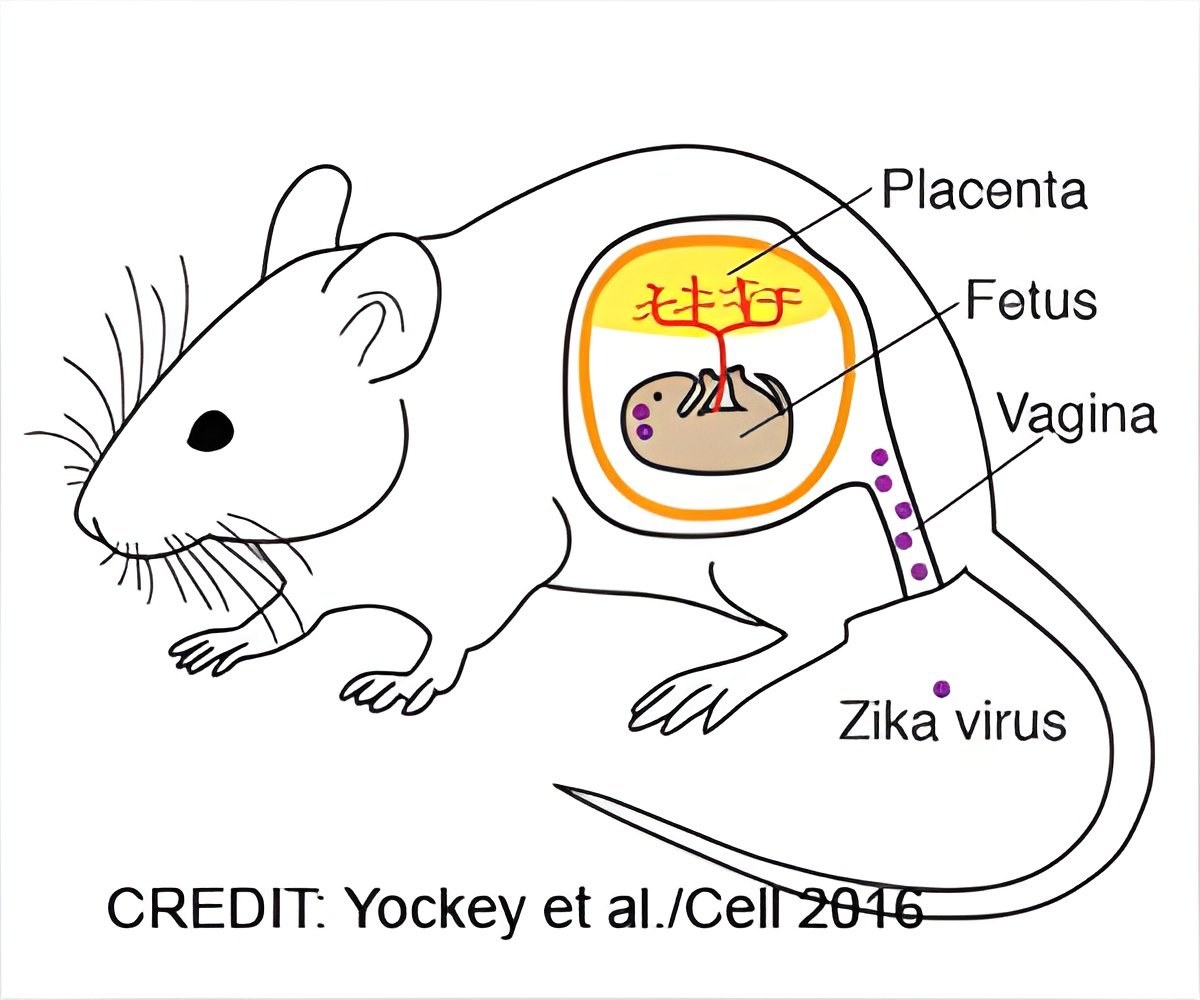
‘In a mouse model, Zika virus survived and replicated for several days in the vaginal mucosa and slowed the brain development in fetuses.’
Tweet it Now
The researcher has been studying viral infections of the genital mucosa for years using herpes simplex virus. When reports began to surface of the Zika virus being sexually transmitted, Iwasaki's interest was piqued. "Using our expertise in genital herpes, we want to understand how the Zika virus behaves when it's transmitted vaginally," said Iwasaki. "The vaginal mucosa was predicted to be a site for virus replication, but there was no hard evidence, so we wanted to create a mouse model."
Mice are not susceptible to Zika virus, but, when it came to a vaginal infection, Iwasaki's team discovered that the virus could survive and replicate for several days in the mucosa even in normal mice. "That's the most surprising finding of this study," Iwasaki says.
When the researchers vaginally infected normal, pregnant mice with the Zika virus, they observed slowed development and brain infection in the fetuses. In the mice genetically engineered to be vulnerable, the virus replicated uncontrollably in the fetus and caused spontaneous abortions. Iwasaki and her colleagues plan to continue researching vaginal infection with the Zika virus in both types of animals. "Studying these things in parallel allows us to see the spectrum of disease," she explains.
The research team is working on a number of critical questions with the new model, including what route the virus takes from the vaginal mucosa to infect the fetus. "The fact that a sexually transmitted virus can end up in the brain of the fetus is worrisome," says Iwasaki. "We're investigating this rigorously." The researchers are also examining new ways of blocking Zika virus entry through the vaginal tract. The study gives clues for blocking the virus within the genitals through the interferon pathway.
"We're cautious about any conclusions regarding human transmission at this point, but the vagina may be a place, in addition to the testes, where the Zika virus can replicate for an extended period of time," says Iwasaki. "We need to be careful about advising the public about sexual exposure with infected women. This study adds a piece to the puzzle in terms of the vagina as a site for virus replication--vaginal secretions may be a reservoir for the Zika virus in humans, but this requires more investigation."
The study is published in the journal Cell.
Source-Medindia













